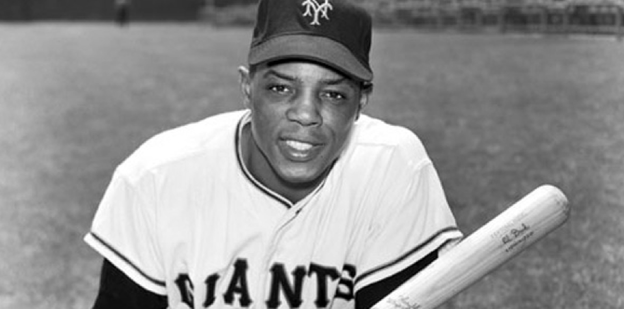The territorio libre of baseball

Watching baseball, sitting in the sun, reading Ezra Pound. Lawrence Ferlinghetti wants an Hispanic or African American [not "Chicano" per se] member of the San Francisco Giants to hit a hole through the Anglo-Saxon epic. He sees Willie Mays flee around the bases as if being chased by the United Fruit Company. The entire panoply of political consequences of his love of the American Other are played out in front of him on the diamond, the nation's traditional (and Irish coplike ump-dominated) game. It's a schticky performance, as so many Ferlinghetti's performances are, but the "revolution round the loaded white bases, / in this last of the great Anglo-Saxon epics, / in the territorio libre of Baseball," is certainly affecting.
Here is a recording of Ferlinghetti reading that poem: "Baseball Canto."
* * *
I was pleased to receive a response to this blog post from Steve Fama, who reminded me that it's certainly worth pondering what Ferlinghetti means when he uses words to describe Caribbean, Central American and South American--and African American--baseball players and fans. "Chicano" won't work as a descriptor for the alternative to traditional baseball he means. See above, where I've noted that in square brackets.
Juan Marichal came to the MLB from the Dominican Republic. Tito Fuentes is Cuban. I think Steve and others who have commented on this poem are right when they say that the use of the term "Chicano" to describe the fans at Candlestick is reductive. This reduction is no help to Ferlinghetti's political position against the incursions of the United Fruit Company. The poem is schticky and imprecise.